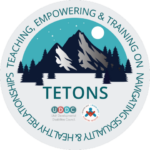

Emotional Health and Puberty for Pre-Teen Children with Disabilities
Puberty varies from child to child, generally starting between the ages of 8 and 14. Children assigned female at birth are now menstruating earlier than previous generations, with the average onset around 11.9 years of age, down from 12.5 years between 1950 and 1969.
Some children may experience delayed puberty due to genetic disorders, pituitary gland issues, chronic illnesses, or neurological impairments. It’s important to remember that puberty occurs in stages and that every body develops at its own pace. While some medical conditions can affect cognitive development, they generally do not impact the timing of puberty. Because of this, puberty education should be age-appropriate, individualized, and focused on skill-building.
Have Transparent, Supportive Conversations
Engaging in open and supportive conversations about puberty lays a strong foundation for positive emotional health and helps set clear expectations about body changes.
-
Use medically accurate terms for body parts and functions to reduce stigma and encourage open communication.
-
Incorporate emotional vocabulary to help your child name and understand their feelings.
-
Teach assertive communication skills so your child can practice consent and learn how to set boundaries with peers.
Use Tools That Support Learning
To keep your pre-teen engaged, consider using visual supports and schedules to introduce new hygiene tasks. Watching videos, reading books, and discussing them together can help reinforce learning in a comfortable, meaningful way.
You can also partner with your child’s occupational therapist, speech pathologist, or psychologist to better understand how they learn and process new information.
Add Puberty to the IEP
Work with your child’s school to include puberty-related education in their Individualized Education Plan (IEP). This can cover:
-
Physical and hygiene changes
-
Emotional support and understanding
-
Social decision-making and boundary-setting
A comprehensive approach during this stage of development ensures your child receives the support they need in all areas of growth.
Key Focus Areas for Late Childhood (Ages 9-12)
- Puberty:
- Discuss the physical and emotional changes that occur during puberty.
- Explain menstruation and emissions (to both genders).
- Consent and Boundaries:
- Discuss consent in relationships.
- Help your child understand personal boundaries and the significance of privacy.
- Healthy Relationships:
- Teach the characteristics of healthy versus unhealthy relationships.
- Address peer pressure and effective decision-making strategies.
Resources for Guardians and Their Pre-Teen:
- Consent: https://youtu.be/1wOqcU79Rh8?feature=shared
- Body Care Basics, Puberty: https://youtu.be/qifY4mb1FS0?feature=shared
- Pimples and Periods, A Puberty Guide: https://youtu.be/uFekBQ18CXU?feature=shared
- Boxers and Boners, A Puberty Guide: https://youtu.be/uFekBQ18CXU?feature=shared
- How to tell if a friendship is toxic: https://youtu.be/lxz_XsycYtY?feature=shared
- Educational articles on puberty written for pre-teens: https://www.plannedparenthood.org/learn/teens/puberty
- Sexual Health Resource Toolkit for Parents of Youth with IDD: https://teenpregnancy.acf.hhs.gov/sites/default/files/resource-files/IDD_Adolescent_Dev_Snapshot.pdf
Information about earlier menstruation in children assigned female at birth: https://www.npr.org/sections/shots-health-news/2024/05/31/nx-s1-4985074/girls-are-getting-their-first-periods-earlier-heres-what-parents-should-know







